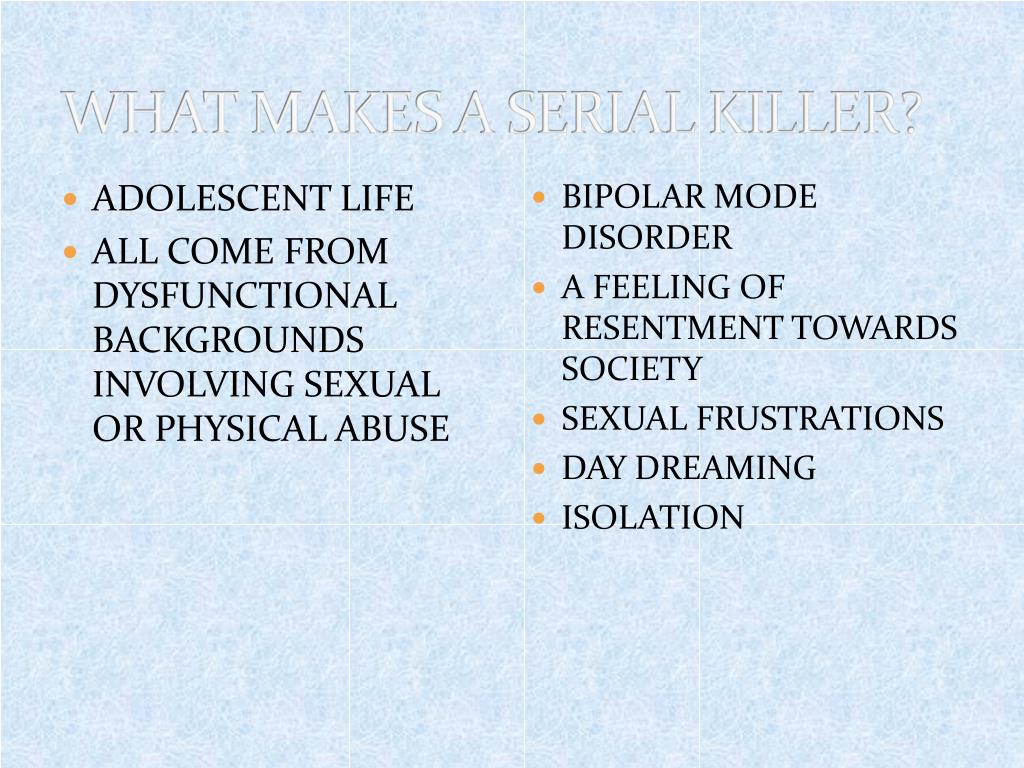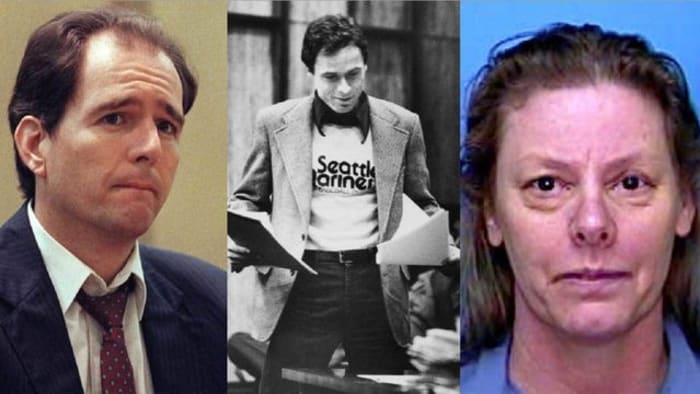
- #WHAT IS THE PURPOSE OF WHAT MAKES A SERIAL KILLER SERIAL#
- #WHAT IS THE PURPOSE OF WHAT MAKES A SERIAL KILLER SERIES#
The only truly chilling thing about Conversations With a Killer was how unchilling it was, so much of a callus has grown over our collective psyche since to allow us to endure such knowledge. Shakespeare may have known that there is no art to find the mind’s construction in the face, but the handsome Bundy, who charmed his victims into leaving the crowd, proved it to the world.
#WHAT IS THE PURPOSE OF WHAT MAKES A SERIAL KILLER SERIAL#
He taught us that serial killers exist – the term was coined around the time of his spree from 1974 to 1978 – and that they probably always have and probably always will. Everything Bundy could teach us as a society has long been absorbed into our fabric. The tapes themselves are the USP here and that’s just Bundy revealing his inner thoughts, which are about as profound as his murderous motives.Ĭontemporary footage of the crime scenes and mothers grieving is harrowing, but pointlessly so. No insights into the complexities of an unfolding case or scandal of corrupt policemen, judges, clergy or politicians. No miscarriages of justice straining to be heard.
#WHAT IS THE PURPOSE OF WHAT MAKES A SERIAL KILLER SERIES#
Unlike some of Netflix’s best true-crime TV series – such as Making a Murderer and The Keepers, or last year’s The Innocent Man – there are no narrative twists awaiting us here.


One of the tragedies (for others) of Bundy’s life is that he was never as bright as he wanted to be, never marked for greatness as he thought he should be – but he is bright enough not to be lured anywhere near to confessing. Moving into the third person, Bundy “imagines”, amid much cod-philosophising and grandiosity, a man who kills in the hope of fulfilling “an appetite”. Until, that is, Michaud suggested he hypothesise about what happened (a gambit that OJ Simpson ran with a few decades later in his book If I Did It, about the murders of Nicole Brown Simpson and Ron Goldman). Except, quite notably, any of the murders, assaults or kidnappings he had been convicted for or the many more of which he was suspected.

The tapes are, in effect, a Bundy monologue, describing first his idyllic childhood (it wasn’t), high school years (“I was one of the boys,” he says, “not a social outcast in any way”) and on through his college days and girlfriends – a stream of revisionist, self-aggrandising words anatomising everything about him. The main one is that “conversations” isn’t accurate.


 0 kommentar(er)
0 kommentar(er)
